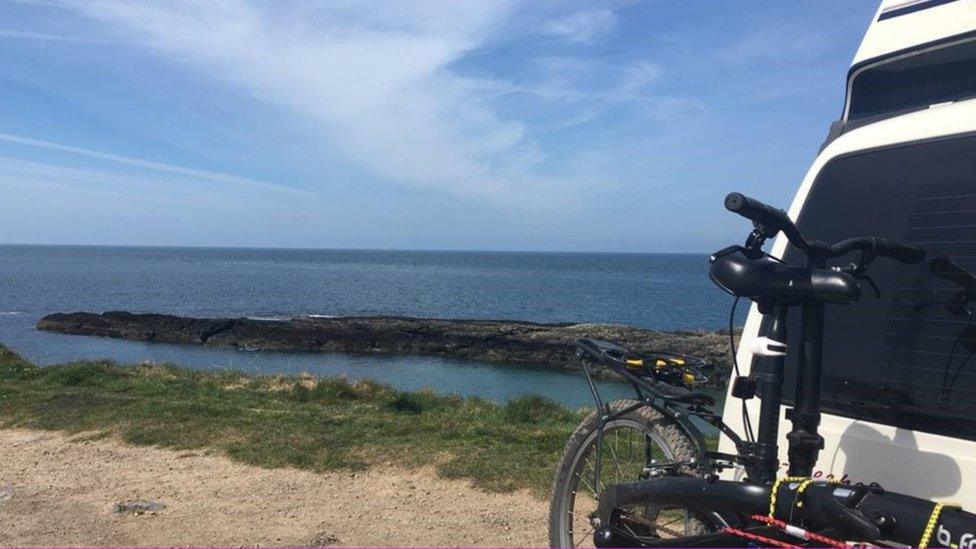Covid in Wales: Calls to respect beauty spots as rules eased
- Published
- comments
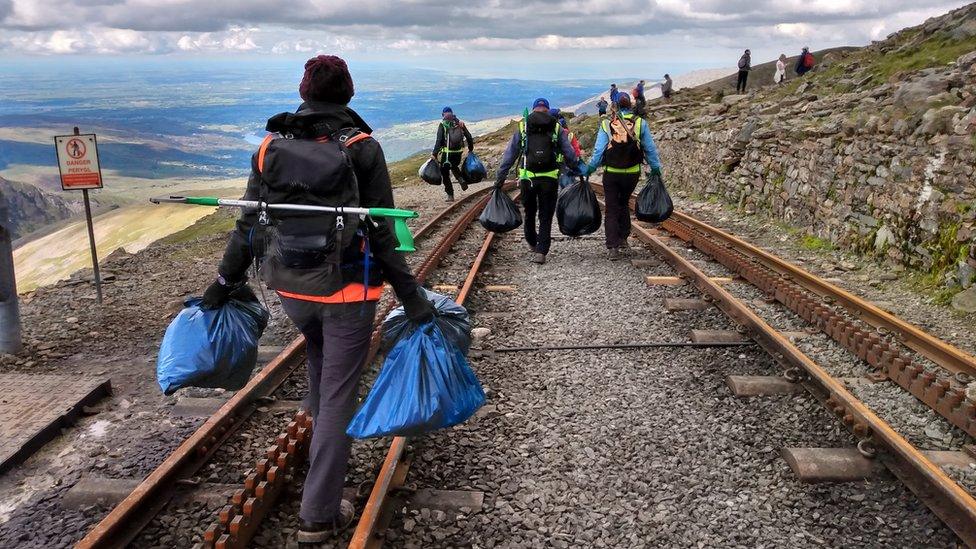
Hundreds of bags of rubbish were collected from Snowdonia last year
There are calls to respect beauty spots as the weather gets hotter and Covid restrictions are eased in Wales.
Natural Resource Wales (NRW) has urged sun-worshippers and beauty seekers to respect local communities ahead of an expected arrival of visitors over the next few weeks during the summer break.
Parking, littering and vandalism were all reported as problems for popular areas last year.
NRW said patrols would be increased but individuals must "behave responsibly".
On Saturday, some restrictions were lifted in Wales, meaning people no longer have to socially distance outside.
From 7 August, more rules will be removed - including the end to most other social distancing and the requirement to wear mask inside pubs and restaurants.
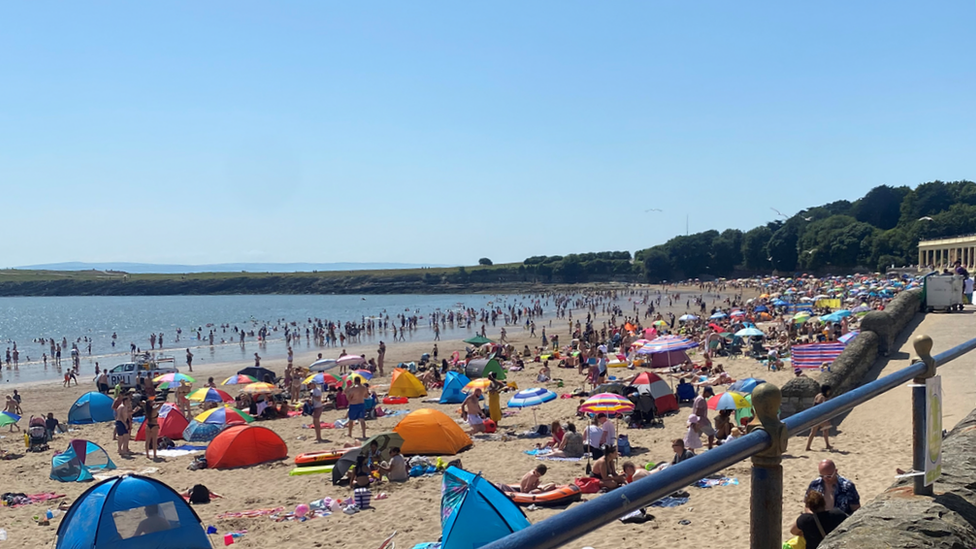
Beaches were busy over the weekend as restrictions were removed and temperatures soared
NRW said its sites had already seen a significant increase in visitors since lockdown began to be eased in March.
But while the majority of visitors left no trace behind, many sites had been "bearing the brunt" of some who "show little to no regard or respect for the areas they have come to enjoy", it said.
That included forests being used as "makeshift car parks and campsites" and the scattering of litter and other waste.
NRW said it would be working with the police and "will not hesitate to take enforcement action" to prevent a repeat of last summer.
Richard Owen, team leader for estate recreation planning and land stewardship, said: "While we are delighted to welcome people back to our sites... we must maintain a balance between the wishes of individuals to enjoy the outdoors and the responsibilities each and every one of us has to protect nature and to respect our local communities."
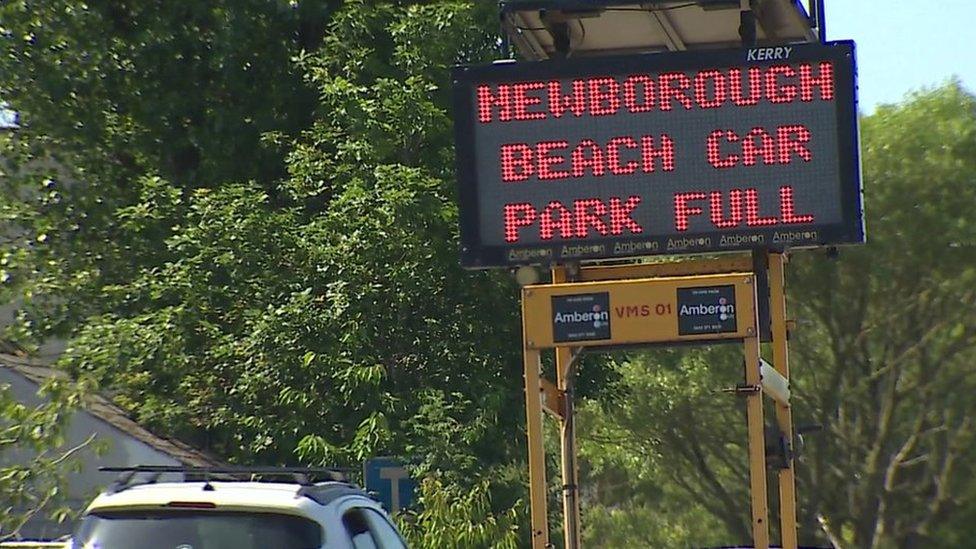
Car parks have been full as many make the trip to Welsh beauty spots
A continuing problem for some sites is mess left behind by people camping, barbecuing and lighting bonfires.
NRW said one of the most prevalent issues it experienced in the Welsh countryside was the impact of wildfires and fly camping - where people pitch tents or park campervans without the landowner's permission and do not clean up after themselves.
Last summer in Porth Ysgaden, Gwynedd, there were reports that human waste was dumped into the sea.
NRW is urging people to follow the Countryside Code, external, including parking responsibly, planning ahead to avoid crowds and cleaning up after themselves.
'It isn't a playground'
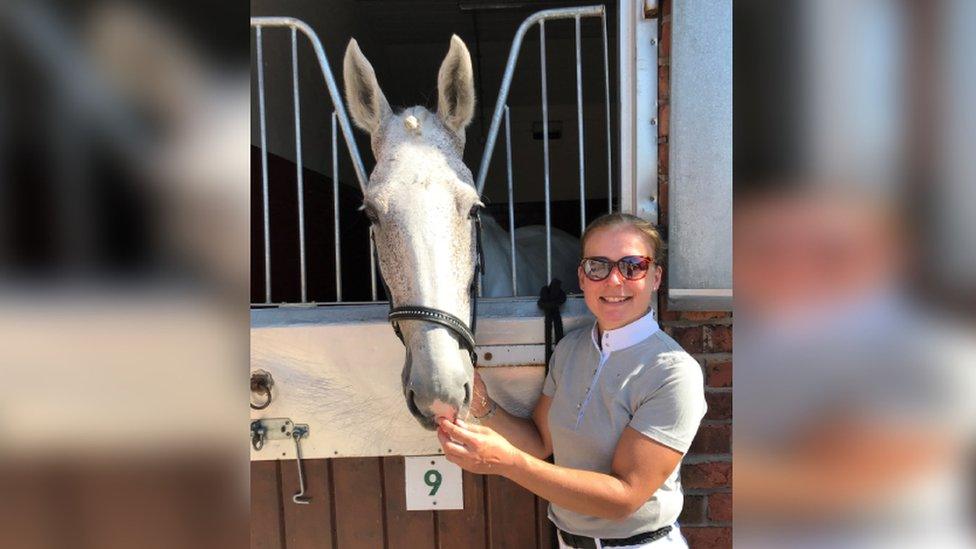
Emma Edwards-Jones said people needed to take personal responsibility
Emma Edwards-Jones is projects manager at Snowdonia-Active - a non-profit consultancy for outdoor activities and conservation.
She said people needed to take personal responsibility when outdoors and to plan thoroughly for activities.
The majority of people were being responsible and doing it right, she said, "but there are some who haven't ventured into the outdoors before and for example, are buying a paddleboard in the morning then heading straight out onto the water in the afternoon".
"Unfortunately, some haven't got the understanding that it isn't a playground and they don't know how to take care of themselves, others and the environment they have come to enjoy.
"For some who have not done a lot outdoors they don't always know what to expect and they're surprised by rural environments with limited access to facilities such as toilets and parking - there is a real lack of understanding of how to behave."
More than 500 cars were parked along the roads in Snowdonia last July
She said personal safety was not just about themselves but reducing the strain on emergency services and respecting the environment.
"We ask people to ask themselves three questions before they set off: do I know what the weather will be like? do I have the right gear? do I have the right skills?
"Personal safety and responsibility for the environment come hand in hand - a lot of people work hard to care for our landscapes and we want to work with visitors so that everyone can enjoy the coast and countryside of Wales," she said.
'Litter attracts more litter'
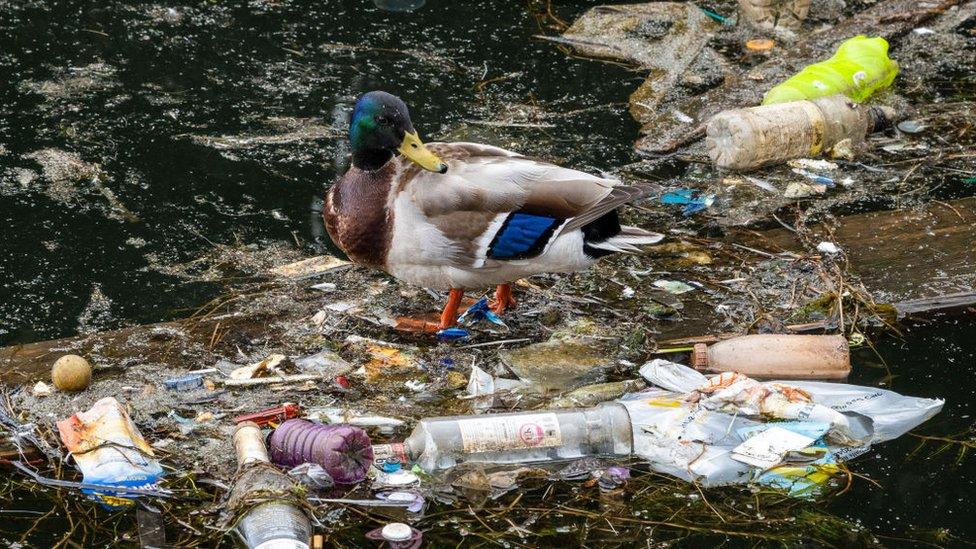
Lesley Jones says litter is a real danger to wildlife
Lesley Jones, chief executive of Keep Wales Tidy, said it was essential rivers, beaches, parks and green spaces were kept clean and safe for everyone to enjoy.
"We saw a devastating increase in litter at iconic beauty spots when restrictions eased last summer and none of us want to see the same thing happen again this year.
"Litter attracts more litter. Just one piece becomes just two pieces, until the tens and the hundreds of pieces are a real and growing danger to wildlife and to our own health and well-being and it is no longer possible for these areas to be enjoyed," she said.

EXPLORE WALES FROM HOME: Join Iolo Williams for a guided tour of Pembrokeshire’s hidden gems
WEATHERMAN WALKING: Explore some of the most spectacular scenery that Wales has to offer

- Published28 May 2021
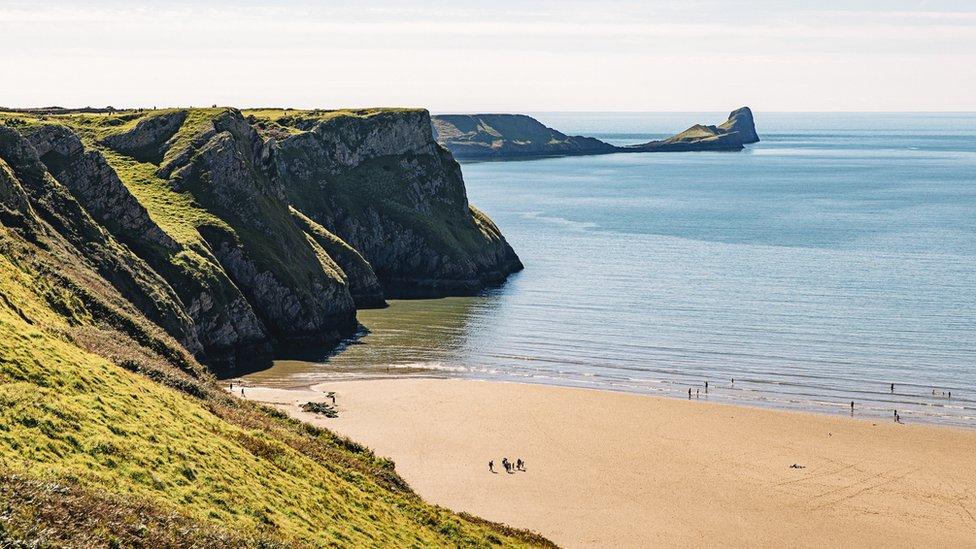
- Published22 May 2021

- Published27 April 2021
